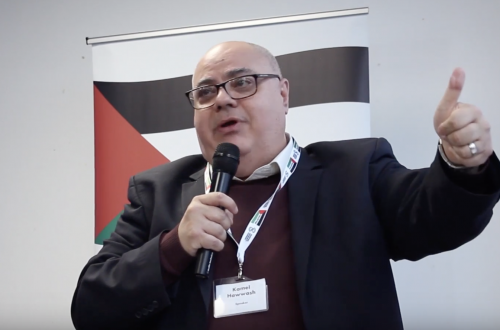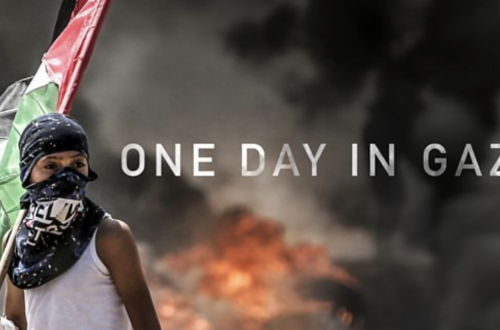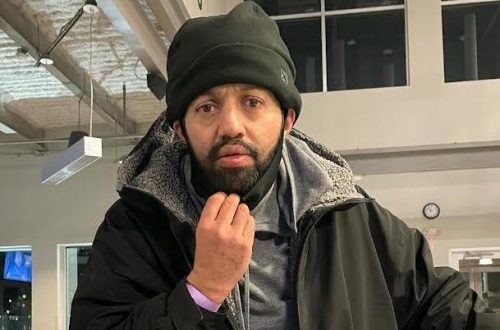This is a guest post by Jonathan Sacerdoti
The Iranian President Hassan Rouhani arrives in Davos this week, keen to market his country’s potential to the world. Meanwhile, Iranian warships are arriving in the Atlantic. Certainly, Iran is branching out westwards, although not in a way that will fill democratic Europeans and Americans with confidence. President Barack Obama himself has now admitted that the chance of a lasting nuclear deal with Iran – an essential precursor to rebuilding diplomatic relations – stands at less than 50%.
The political “selfie” was a notable trend of 2013, with world figures photographing themselves at significant events. These carefully-cultivated, smiling images of world leaders were intended to show that they are ‘just like us’. Rouhani may not be about to whip out his smart-phone and hold it at arms length for his Instagram moment, but he too is doing all he can to create a deceptive image of himself as the peaceful, moderate leader of a progressive Iran. Just as in the political selfie, this is a case of style over substance.
With oil companies and international business keen to make inroads and investments in Iran, Rouhani is working hard to overcome the perception of his country as an extremist, aggressive state, in spite of the mounting evidence which supports such a conclusion. His quest has been unexpectedly aided by an optimistic liberal media keen to emphasise the fact that he and his Foreign minister Zarif are both “Western-educated” and relative moderates in Iran’s Khomeinist political system. Such a view overlooks the facts that many obnoxious and regressive political figures, from President Assad to Kim Jong Un, have similarly received Western educations, and that genuine moderates and reformers are deliberately and automatically excluded from running election campaigns in Iran by virtue of its restricted electoral system.
There are those who hold out hope that the conclusion of a preliminary, six-month interim nuclear deal between Iran and the West will be the start of a potential relationship based on security concerns and economic prosperity. The idea is that Iran and the West are “natural allies”, sharing an interest in fighting Al Qaeda and weaning the West off Arab oil. Thus, diplomatic overtures between Iran and Western diplomats could be the dawn of a new chapter.
But only days into the implementation of the interim nuclear deal, this narrative has proven itself to be unreliable. Despite the USA and Iran finding themselves with ostensibly similar security concerns in Iraq, Western intelligence reports suggest collaboration and secret oil deals between Al Qaeda and the Iranian-backed Syrian regime, proving, as ever, that the Middle East is a far more complex region than first meets eye. This should at least make us think twice before considering Iran as a trustworthy partner for security, especially given the paradoxical and complicated relationship between Iran and Al Qaeda over the years.
Moreover, those holding to a grand vision of Western-Iranian co-operation on international issues have hurriedly put to one side the horrific human rights situation in Iran, whereby political dissidents, gay people, converts to Christianity and human rights activists languish in gaol. The issue raised its head again this week with news from Amnesty International that the regime has hanged 40 people within the first two weeks of 2014 alone. If this is how the ‘moderates’ behave without nuclear weapons, what might they do with them, when they can act with impunity?
Iran and the West shared hugs and flirtatious smiles when the interim nuclear deal was concluded towards the end of last year, but Iran has since sought to lay down some boundaries. John Kerry and Catherine Ashton were visibly elated to sign the deal in Geneva, building a personal rapport with Iran’s Zarif. Yet two months is a long time in diplomacy, and Iran is no longer even welcome in the same city for talks on Syria. Iran had its invitation cancelled when it refused to abide by the guidelines of the Geneva Communiqué, which suggests the way forward for Syria should not include Bashar al-Assad, the man who has overseen the assault, reported starvation and deaths of tens of thousands of his own civilians.
When the USA baulked at the UN’s invitation of Iran to the “Geneva 2” conference, it was accused of recting Iranian dialogue with the West. Some suggested that by refusing Iran the right to participate in planning Syria’s future, the USA and UK were adopting an unrealistic, bellicose and unreasonable position. The gulf is growing between how Western leaders might want Iran to behave, and how it actually does. Israel’s Prime Minister Benjamin Netanyahu found himself in a similar situation months ago, when he pointed out the gaping chasm between Iran’s public insistence that it does not seek a nuclear weapon, and its continuation of uranium enrichment. As it negotiated with the West to reach an interim deal, Iran was keep the centrifuges spinning, and continued to develop its advance plutonium nuclear track – something which has no possible use in civilian nuclear energy.
Netanyahu was widely criticised for his perceived pessimism on Iran, but today the USA and UK adopt his line of argument – that the disparity between Iran’s continued aggressive actions and its diplomatic overtures and soundbites renders any deal to be unrealistic and devoid of meaning. If Iran can’t be trusted on Syria, why should we trust it on its nuclear intentions?
Iran may speak of the need to counter extremism in Syria, but it has done a good job instead of encouraging it. The Assad regime has benefitted from Iran’s military leaders conducting operations on the ground, its training of Hezbollah terrorists to fight in the southern part of the country, and from its funding of President Assad’s barrel-bombing campaign against his own people. Iran’s operations in Syria are masterminded by Qasem Soleimani, the head of Iran’s Al-Quds force.
Its support for Shia Islamist terror undermines the narrative of Iran as a potential counter-weight to Sunni Islamist extremism. The Hezbollah organisation – conceived, funded and trained by Iran – is currently preventing four of its men from standing trial in The Hague for the murder of Lebanese Prime Minister Hariri, whilst it continues to stockpile rockets and weapons, with the intention of terrorising Israeli civilian populations and hiding amongst Lebanese civilians.
Earlier this month, FM Zarif placed a wreath on the grave of Imad Mugniyeh, the assassinated Hezbollah commander who plotted deadly attacks on the US Embassy in Lebanon killing 63, and a US army barracks killing a further 241 people, as well as an attack on a building in Beirut housing French paratroopers, killing 58. The US National Security Council swiftly condemned Zarif, drawing attention to the “heinous acts of terrorism” overseen by Mugniyeh. Incidentally, Mugniyeh’s son Jihad had mourned alongside Qasem Soleimani at Soleimani’s mother’s funeral last year.
Even though the alarm bells ring loudly on Iran, it is sometimes hard to hear them above the unduly optimistic and noisy chatter of a more reasonable Iran being reintegrated into a more dovish international community. If we are to achieve a lasting peace with Iran, rather than temporary peace treaties, Israel’s concerns over an increasingly-confident nuclear Iran and the USA and UK’s concerns over Iranian support for the Assad regime are not to be ignored.
President Rouhani’s appearance at Davos is not the moment for the international community to welcome Iran with open arms, but rather to challenge him. For Rouhani to be a respectable international player, it is he rather than Mr Obama or Mr Netanyahu who needs to drastically overhaul his country’s international policies. As matters stand, Rouhani’s makeover is more cosmetic than substantive.


